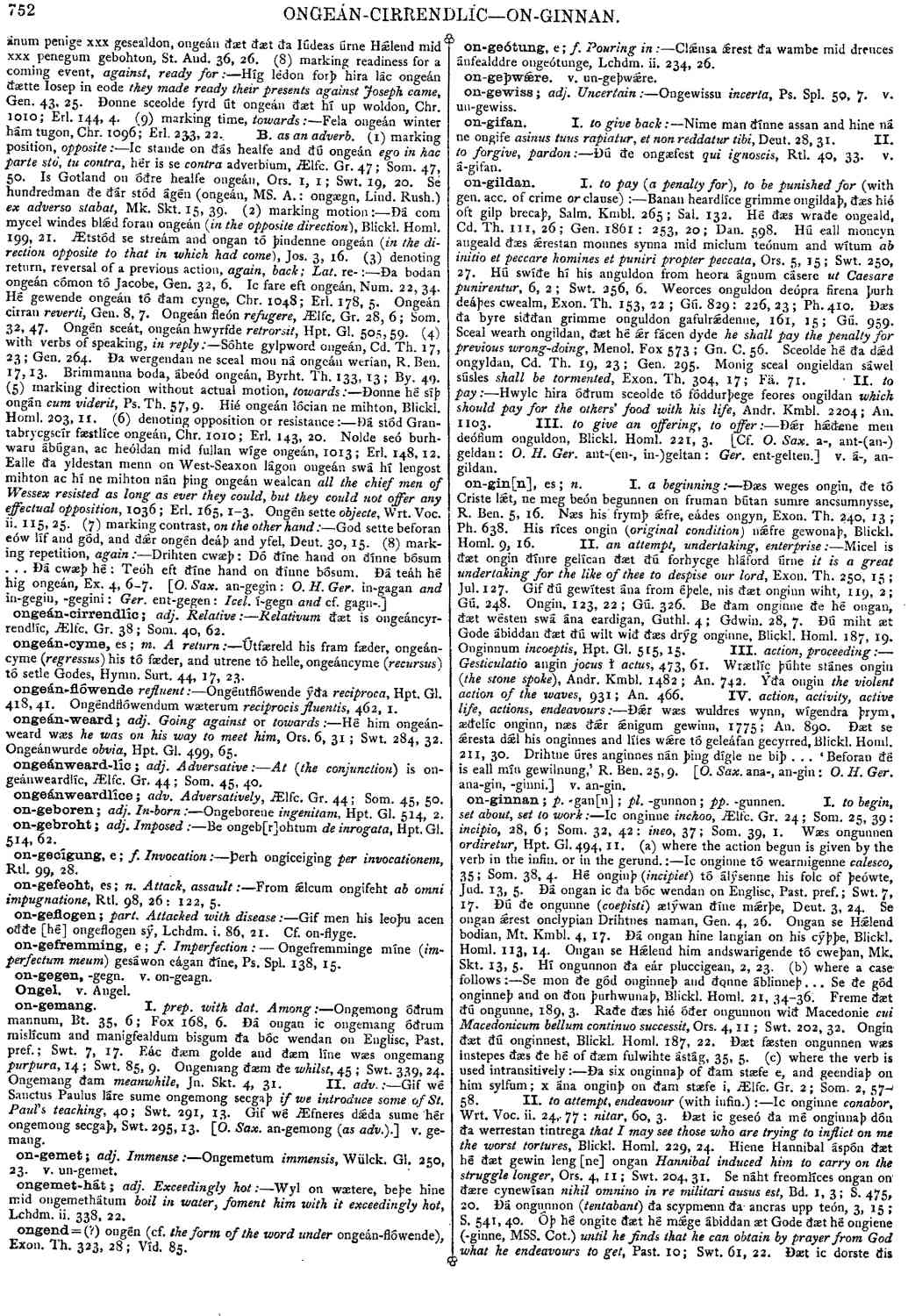on-gin
- noun [ neuter ]
-
Ðæs weges ongin, ðe tó Criste lǽt, ne meg beón begunnen on fruman bútan sumre ancsumnysse,
- R. Ben. 5, 16.
-
Næs his frymþ ǽfre, eádes ongyn,
- Exon. Th. 240, 13; Ph. 638.
-
His ríces ongin (
original condition
) nǽfre gewonaþ,- Blickl. Homl. 9, 16.
-
Micel is ðæt ongin ðínre gelícan ðæt ðú forhycge hláford úrne
it is a great undertaking for the like of thee to despise our lord,
- Exon. Th. 250, 15; Jul. 127.
-
Gif ðú gewítest ána from éþele, nis ðæt onginn wiht,
- 119, 2; Gú. 248.
-
Ongin,
- 123, 22; Gú. 326.
-
Be ðam onginne ðe hé ongan, ðæt wésten swá ána eardigan,
- Guthl. 4; Gdwin. 28, 7.
-
Ðú miht æt Gode ábiddan ðæt ðú wilt wið ðæs drýg onginne,
- Blickl. Homl. 187, 19.
-
Onginnum
incoeptis,
- Hpt. Gl. 515, 15.
-
Gesticulatio angin
jocus ł actus,
- 473, 61.
-
Wrætlíc þúhte stánes ongin (
the stone spoke
),- Andr. Kmbl. 1482; An. 742.
-
Yða ongin
the violent action of the waves,
- 931; An. 466.
-
Ðǽr wæs wuldres wynn, wígendra þrym, æðelíc onginn, næs ðǽr ǽnigum gewinn,
- 1775; An. 890.
- Ðæt se ǽresta dǽl his onginnes and líles wǽre tó geleáfan gecyrred. Blickl. Homl. 211, 30.
- Drihtne úres anginnes nán þing dígle ne biþ. . . 'Beforan ðé is eall mín gewilnung,' R. Ben. 25, 9.
Bosworth, Joseph. “on-gin.” In An Anglo-Saxon Dictionary Online, edited by Thomas Northcote Toller, Christ Sean, and Ondřej Tichy. Prague: Faculty of Arts, Charles University, 2014. https://bosworthtoller.com/24584.
Checked: 0